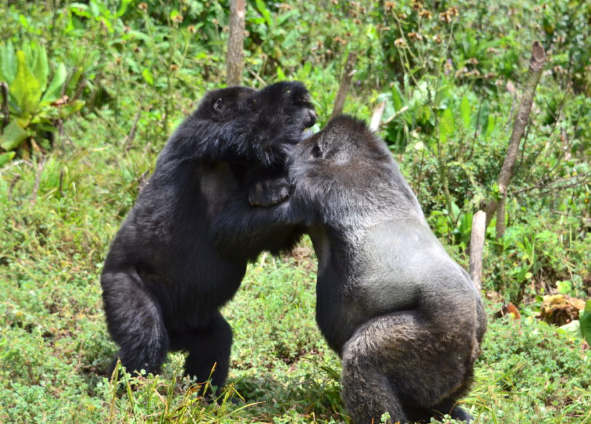Gorilla Play Behavior and Juvenile Development
Understanding the play behavior of gorillas is not just fascinating; it offers valuable insights into their social structure, learning processes, and emotional well-being. Juvenile gorillas, in particular, engage in various forms of play that foster physical and mental development, which can also provide parallels to human childhood experiences.
The Importance of Play in Gorilla Development
Play is a crucial aspect of juvenile gorilla life. It allows young gorillas to develop essential skills that they will carry into adulthood. Through play fighting, climbing, and chasing, juvenile gorillas enhance their physical coordination and strength. Additionally, these activities serve as a practice ground for social interactions, teaching them important lessons about cooperation, competition, and conflict resolution. In the wild, such playful interactions can be vital for survival, as they prepare gorillas for the complexities of adult life.
Social Dynamics among Young Gorillas
Juvenile gorillas often engage in play with their peers to establish social bonds and hierarchies within the group. These interactions can include roughhousing or playing tag, which help the young gorillas learn their place within the family unit. The social dynamics observed during play can be intricate, as more dominant individuals may exhibit leadership roles, while others learn to navigate friendships and rivalries. This playtime not only fosters connections but also nurtures empathy, as gorillas learn to read social cues and respond appropriately to their companions’ needs.
Cognitive Development through Play
Beyond physical and social skills, play significantly contributes to the cognitive development of juvenile gorillas. Engaging in various forms of play challenges them to solve problems, think critically, and adapt to new situations. For instance, inventive play, like using objects in their environment, promotes exploration and curiosity. This kind of cognitive engagement is essential for their overall intelligence, which is a critical factor for their survival in competitive natural settings. Observing juvenile gorillas can thus provide invaluable insights into the cognitive processes that underlie their playful behavior.
Conclusion
The play behavior of juvenile gorillas serves as a window into their development and social structures, shedding light on essential aspects of their growth. Understanding the significance of play not only enhances our appreciation for these magnificent creatures but also emphasizes the importance of play in overall development across species. To learn more about gorillas and their intriguing behaviors, consider visiting a local zoo or wildlife sanctuary, or explore literature that delves deeper into primate behavior.

